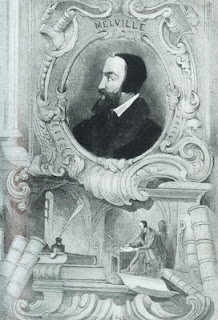Originally posted at The Heidelblog:
See also:
 |
| Andrew Melville - Wikipedia |
"Sir, we will always humbly reverence your majesty in public; but since we have this occasion to be with your majesty in private, and since you are brought in extreme danger both of your life and crown, and along with you the country and the church of God or like to go to wreck, for not telling you the truth and giving you faithful counsel, we must discharge our duty, or else be traitors both to Christ and you. Therefore, Sir, as diverse times before I have told you so now again I must tell you, there are two kings and two kingdoms in Scotland: there is King James the head of this commonwealth, and there is Christ Jesus the King of the church, whose subject James the sixth is, and of whose kingdom he is not a king, nor a lord, nor a head, but a member. Sir, those whom Christ has called and commanded to watch over his church, have power and authority from him to govern his spiritual kingdom both jointly and severally; the which no Christian king or prince should control and discharge, but fortify and assist; otherwise they are not faithful subjects of Christ and members of his church. We will yield to you your place, and give you all due obedience; but again I say, you are not the head of the church: you cannot give us that eternal life which we seek for even in this world, you cannot deprive us of it.”Source: http://heidelblog.net/2014/10/melville-two-kings-two-kingdoms/
—Andrew Melville (5096) in Thomas McCrie, The Life of Andrew Melvill (Edinburgh: William Blackwood, 1824), 1.391–92.
See also:
- Silly Vassal (Virginia is for Huguenots)